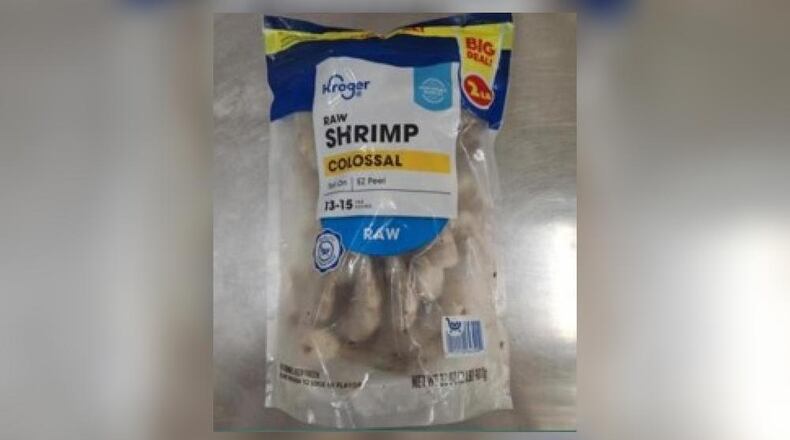- Two-pound bags of Kroger Raw Colossal EZ Peel Shrimp and
- Two-pound packages of Kroger Mercado Cooked Medium Peeled Tail-Off Shrimp
- One and a quarter pound bags of AquaStar Raw Peeled Tail-on Shrimp Skewers
Like in the existing recall famously affecting shrimp sold at Walmart, the FDA said it is concerned that the shrimp could have been contaminated with cesium-137 while being prepared in unsanitary conditions.
The newly recalled shrimp was sold at multiple stores, including Kroger, across 31 states from June 12 to Sept. 17.
Where did the shrimp come from?
The FDA said that the contamination is connected to shipping containers and frozen shrimp processed by P.T. Bahari Makmur Sejati of Indonesia, doing business as BMS Foods.
Cesium-137 was detected by customs officials in a single shipment of imported frozen shrimp in late August at levels that the FDA said didn’t pose an “acute risk.”
What is Cesium-137, and what does it do?
Cesium-137 is a man-made radioactive substance and has a number of uses, including radiation therapy for people with cancer, medical sterilization and industrial gauges. Small amounts are found in the environment from nuclear weapons testing in the 1950s and 1960s as well as from nuclear reactor accidents.
Repeated exposure to low-level radiation over time could have health impacts, the largest being an increased risk of cancer.
The agency added that no illnesses have been reported connected to radioactive material in the shrimp, and by Aug. 19 no cesium-137 had been found in products that had entered the U.S. market.
What happens now?
Consumers who bought the affected shrimps were urged not to eat them, but to throw them away or return them for a refund.
Full details of UPCs, lot codes and “Best If Used By” dates are available on the FDA recall website.
About the Author

